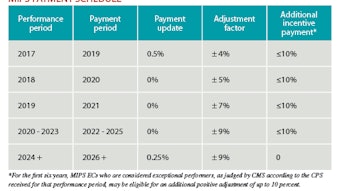Academy, Anthem collaborate on new diagnostic fiberoptic flexible laryngoscopy policy
Thanks to Academy physician leaders’ comments and clinical recommendations, Anthem revised clinical coverage indications in their new diagnostic fiberoptic flexible laryngoscopy (FFL) medical policy.

Key additions for initial treatment include:
- Diagnosis of symptomatic disorders involving the voice, swallowing, and upper aerodigestive tract, including obstructive sleep disorders;
- Preoperative evaluation of vocal cord function for individuals undergoing surgery where the recurrent laryngeal or vagus nerves are at risk of injury (for example, thyroid, anterior cervical spine, or carotid procedures);
- Further evaluation of abnormalities of the upper aerodigestive tract discovered by another modality, such as CT, MRI, bronchoscopy, or EGD.
Key additions for repeat procedures include:
- Assessing results of treatment for disorders involving the voice, swallowing, and upper aerodigestive tract, including obstructive sleep disorders;
- Surveillance for recurrence of tumors of the upper aerodigestive tract;
- Monitoring for growth or change of known lesions or disorders of the upper aerodigestive tract, which may or may not be subject to treatment;
- Postoperative evaluation of vocal cord function for individuals undergoing surgery where such function may be impacted, such as thyroid, anterior cervical spine, or carotid procedures.
Last summer, Anthem reached out to the Academy for assistance in developing and reviewing a new FFL medical coverage policy. The Academy worked with the Airway and Swallowing Committee, Voice Committee, Head and Neck Surgery & Oncology Committee, and the Physician Payment Policy (3P) Workgroup to review the policy and provide feedback. The initial draft policy considered fiberoptic flexible laryngoscopy medically necessary for the diagnosis of symptomatic disorders involving the voice, swallowing, and upper aerodigestive tract, but lacked the necessary details in accurately treating a patient. After submitting a comment letter and discussing the policy in the fall with Anthem leadership, clinical recommendations were incorporated and are reflected in the new policy. Notable comments were made by Robert Lorenz, MD, MBA, Jane T. Dillon, MD, MBA, and James C. Denneny III, MD.
To learn more about this policy and other private payer advocacy achievements, visit http://www.entnet.org/content/private-payer-advocacy.











